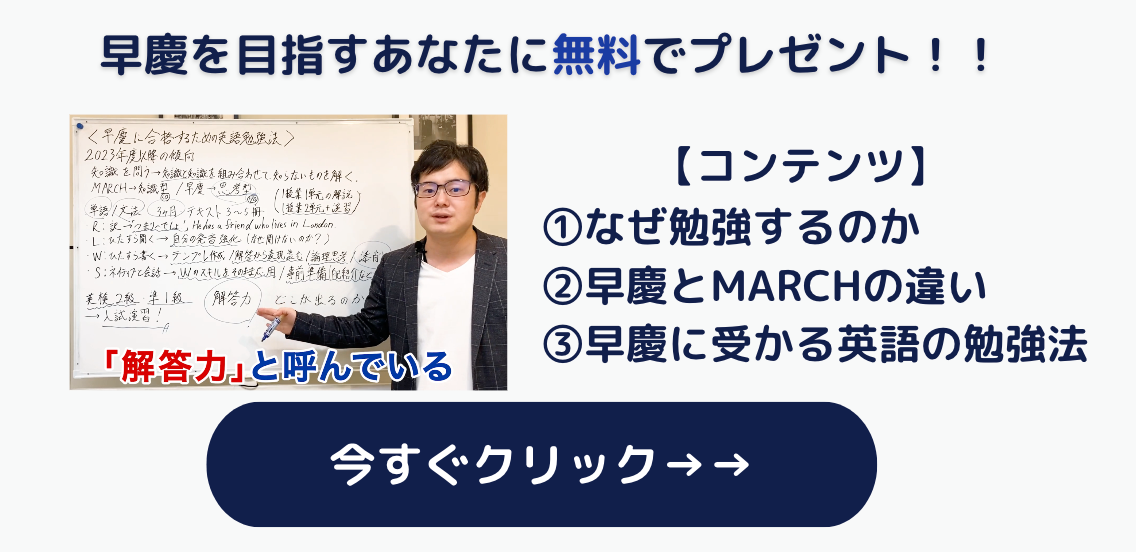Contents
次の各文の( )内から適当なものを選びなさい。
| (1) | I (would/used) like to be an engineer. |
| (2) | There (would/used to) be a movie theather on this street before. |
| (3) | He (cannnot/must) have been tired;he didn't look well. |
| (4) | (Would/Should/Shall) you please read the book for me? |
| (5) | Your grandmother (will/shall) get well in a few days.(get well「良くなる」) |
| (6) | (Shall/Will) I tell him to come earlier? |
| (7) | "Must I paint the fence today?" - "No, you (must/need) not. |
| (8) | I (should/would/used to) live in Hokkaido. |
| (9) | You (should/would/ought) to eat more vegetables. |
ヒント
| (3) | |
| (5) |
次の2文が同じ意味になるように、( )内に適する語を入れなさい。
| (1) | She ( ) be eighteen on her next birthday. 「彼女は今度の誕生日で18歳になるよ」 |
| (2) | I ( )( )( ) study hard so that I can be a doctor. 「医者になるために一生懸命勉強するつもりです」 |
| (3) | ( ) I borrow your dictionary? 「辞書を借りてもいいかな」 |
| (4) | You ( ) be able to do it in a year or so. 「一年かそこらでそれをできるようになるよ」 |
| (5) | I ( ) hardly understand what you say. 「あなたの言っていることがほとんど理解できない」 |
| (6) | He cannot ( ) done such a thing. 「彼がそんなことをしたはずはない」 |
| (7) | You ( )( ) this cake later. 「後でこのケーキを食べてもいいですよ」 |
| (8) | We ( ) be in time. 「時間に間に合うかもしれないね」 |
| (9) | Mary ( ) not accept his present. 「メアリーは彼からのプレゼントを受け取ろうとしなかった」 |
| (10) | He ( )( ) there at once whether he likes it or not. 「好むと好まざるとにかかわらず、彼をすぐそこへ行かせるよ」 |
ヒント
| (5) | |
| (6) | |
| (10) |
| 準否定の語句 hardly/little/few = 「ほとんど~ない」 seldom/rarely = 「めったに~ない」 ex. I can hardly wait for her any more. 「もうこれ以上彼女を待てません」 |
[ ]内の指示に従って答えなさい。
| (1) | I want to meet your boss. | [助動詞を使って丁寧な表現に] |
| (2) | The old man must be alive. | [助動詞を変えて反対の意味に] |
| (3) | You may swim in this river. | [助動詞を変えて強い禁止の意味に] |
( )内から適するものを選びなさい。
| (1) | They (ought/should) to have arrived by now. | |
| (2) | He (ought/would) not take my advice. | |
| (3) | He (would/used) to love her. | |
| (4) | There (was/used) to be a bridge here. | |
| (5) | The next meeting (is/used) to be held on March 3. (be held「(会議などが)開かれる」) |
ヒント
| (1) | |
| (5) |
次の2文が同じ意味になるように、( )内に適語を入れなさい。
| (1) | You should ovey your parents. =You ( ) to obey your parents. |
|
| (2) | Let't go to the museum after lunch. =( ) we go to the museum after lunch? |
|
| (3) | You don't have to attend the meeting. =You ( ) not attend the meeting.(attend「出席する」) |
|
| (4) | I can't believe the rumor. =The rumor ( ) be true. |
ヒント
| (3) | |
| (4) |
次の2文が同じ意味になるように、( )内に適する語を入れなさい。
| (1) | We ( )( ) meet him tomorrow afternoon. 「私たちは明日の午後に会うことになっている」 |
|
| (2) | "( )( ) call a taxi for you?" - "Yes, please." 「タクシーをお呼びしましょうか」 - 「ええお願いします」 |
次の各文の誤りを直しなさい。
| (1) | We ought to not waste our time. | |
| (2) | You don't had better talk to Mr.Smith now. | |
| (3) | There would be many fireflies around here.(firefly「蛍」) | |
| (4) | He must be hungry. He ate enough just now. |
ヒント
| (2) |
次の各文の下線部を和訳しなさい。
| (1) | You don't have to read all the books. Only a few of them are enough. |
| (2) | The sky is clear and we can see Mt.Fuji today. |
| (3) | How do you think he wouldn't answer any questions I asked him? |
| (4) | If you are going to visit your uncle in hospital tomorrow afternoon, you had better phone him beforehand. |
ヒント
| (4) |

